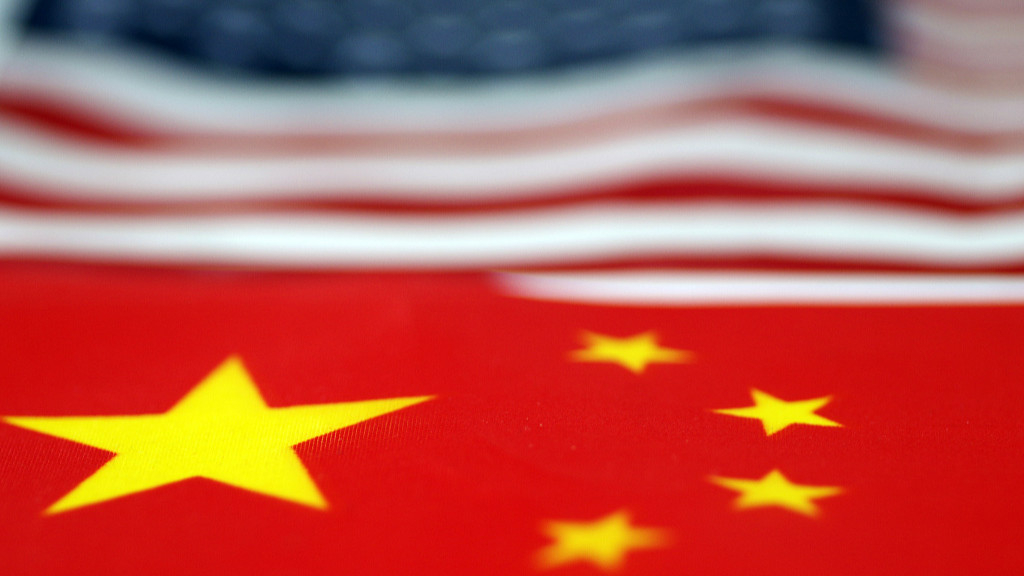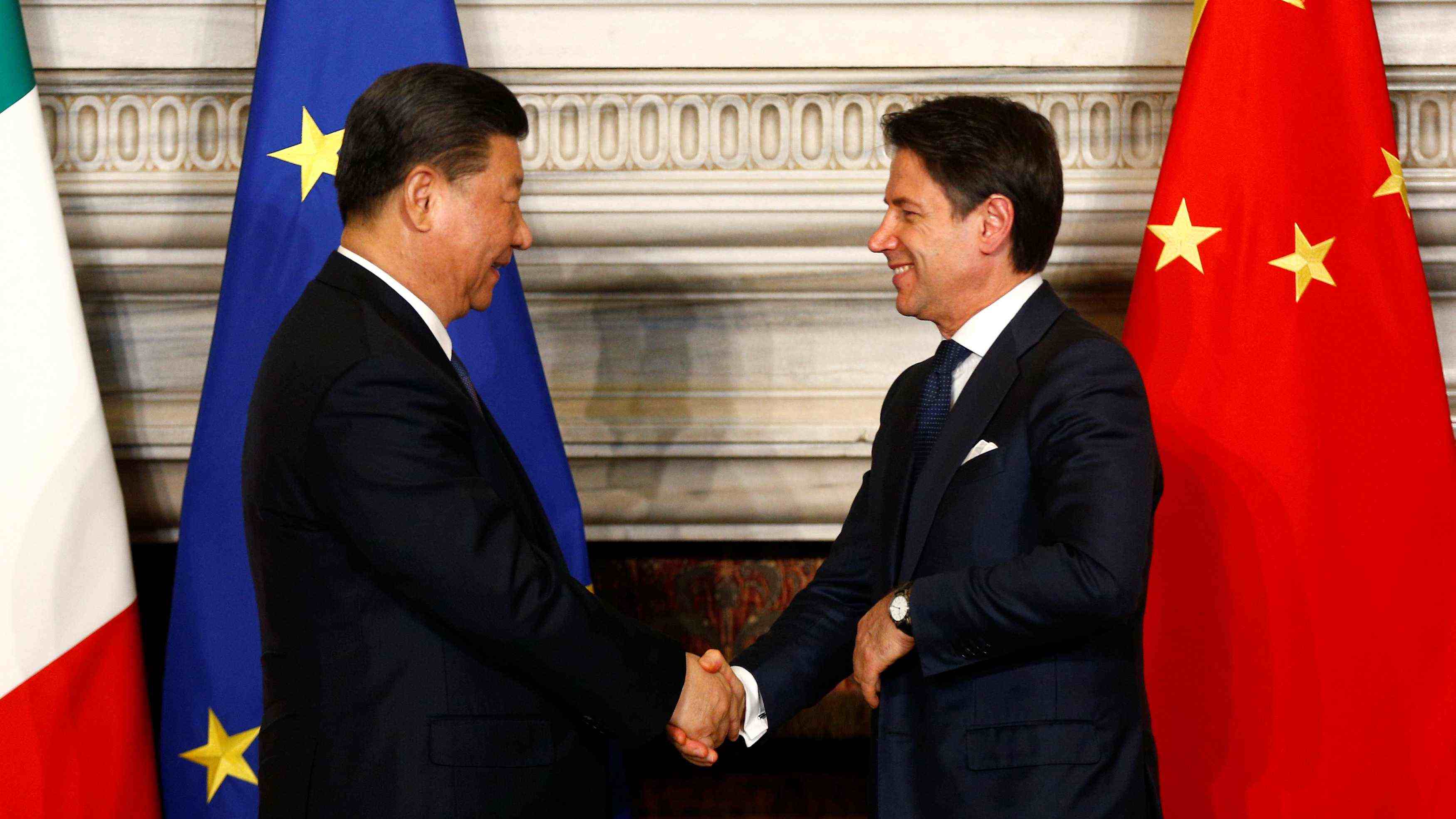
Opinion
20:20, 24-Apr-2019
U.S. could gain much from BRI participation
Adam Garrie

Editor's Note: Adam Garrie is the director of the UK-based global policy and analysis think tank Eurasia Future and co-host of a talk show "The History Boys." The article reflects the author's opinion and not necessarily views of CGTN.
Cui Tiankai, China’s Ambassador to the United States has delivered remarks on why it would be beneficial for the United States to join the Belt and Road Initiative (BRI). Cui remarked that based on the level of trade between China and existing BRI partners, U.S. participation in the international initiative could help the U.S. to achieve greater success in international trade.
Logic would dictate that it is awkward for the world's two most prominent trading partners not to jointly participate in the same multilateral initiative. Although increasing its share of exports is not unilaterally contingent on joining BRI, if the United States wanted to maximize its potential to increase its exports as Donald Trump has often stated is his intention, U.S. participation in BRI would greatly help U.S. producers to accomplish this.
Because BRI's aim is to match the needs of specific partner nations with the production capacities of countries that can enhance their economic growth through expanded trade, BRI would offer the U.S. greater connectivity to markets where American goods and services are desired. Likewise, BRI would also give the U.S. a chance to diversify its import strategy in line with the wishes of the U.S. business community which remains overwhelmingly in favor of free trade as is frequently conveyed by the influential U.S. Chamber of Commerce.

Workers load cargo on March 9 at the port of Nantong in the eastern province of Jiangsu. /VCG Photo
Workers load cargo on March 9 at the port of Nantong in the eastern province of Jiangsu. /VCG Photo
The fundamental problem at hand is a misunderstanding by certain U.S. policymakers on what BRI represents. BRI is not about creating a monolithic Chinese trading bloc that seeks to rival the capacities of the world's largest economy - that of the United States.
BRI is not a trading bloc at all in the traditional sense. Instead, BRI is a series of joint infrastructural projects, a network of countries aiming to increase trade based on specific win-win agreements rather than a singular treaty, a group of nations willing to share investment and financial opportunities on the basis of mutual agreement and it is also a network that can help to improve people to people connectivity across the globe.
Unlike trading blocs, BRI stresses de-centralization in terms of structure and unity only in a sense of purpose - that of fostering peace through the prosperity that comes through sustainable development within a rules-based trading framework.
As such, every nation looking to trade more, modernize its infrastructure, expose its industries to better financial opportunities and create more individual opportunities for its people stands to benefit from BRI participation. This is true both for developing nations looking to elevate the material condition of their people as well as large and developed nations looking to attain sustainable growth.
It must also be emphasized that BRI membership does not exclude any nation from trading with any other nation. BRI is not a customs union, single market or free trading area. As such, BRI opportunities are an addition to any given nation's existing trading agreements, but it is not a substitution.
This level of win-win flexibility is in-line with China's policy of never engaging in or promoting any international strategy that offers partnerships with strings attached. Because BRI has no political or security component, several countries that are both in the EU and NATO, including Italy have signed up to BRI whilst retaining membership in the NATO and the EU.

Chinese President Xi Jinping and Italian Prime Minister Giuseppe Conte shake hands after signing trade agreements at Villa Madama in Rome, March 23, 2019. /Reuters Photo
Chinese President Xi Jinping and Italian Prime Minister Giuseppe Conte shake hands after signing trade agreements at Villa Madama in Rome, March 23, 2019. /Reuters Photo
At present, the U.S. economy is growing faster than many other developed economies in Europe. As such, U.S. membership in BRI would likely accelerate this growth to new heights. This itself is proof that far from seeking to rival the U.S.
China actually wants to use BRI as yet another opportunity to expand and improve positive relations with the U.S. No country would ever invite a "rival" into its unique alliance but because BRI is a series of individual partnerships rather than an economic or security alliance, this is a non-issue. BRI is designed to break down the zero-sum mentality of geopolitical competition and to instead guide the world towards a more cooperative mentality.
It is clear that many in the U.S. continue to see BRI as something it is not. The world as a whole however could benefit greatly if the U.S. adopted a new win-win approach to BRI, thus allowing ever more cooperation between the world's largest economies for the benefit of multiple nations.
China continues to view the U.S. as a valuable partner rather than a rival. Although the disputes between China and the U.S. are well known, the only reasonable way to solve them is by compartmentalizing areas of cooperation from areas of dispute and then to use a dialogue-based approach aimed at transforming areas of disagreement into areas of win-win cooperation wherever possible.
(If you want to contribute and have specific expertise, please contact us at opinions@cgtn.com.)

SITEMAP
Copyright © 2018 CGTN. Beijing ICP prepared NO.16065310-3
Copyright © 2018 CGTN. Beijing ICP prepared NO.16065310-3